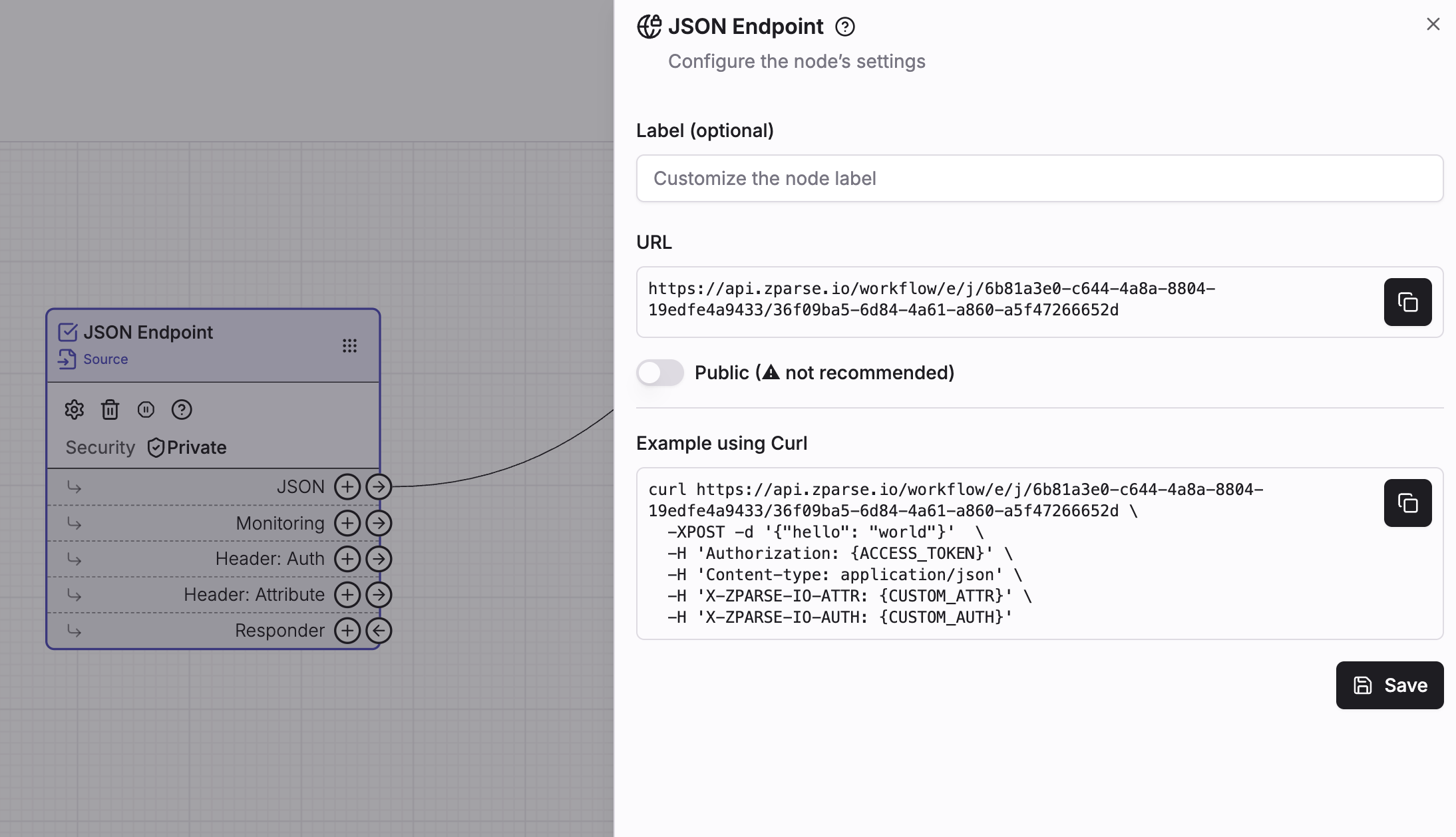Publish JSON Endpoint
Our Publish JSON Endpoint feature provides a simple and secure way to get your data into Zparse. Just send a JSON payload from any application, and it will automatically trigger a workflow to process your data instantly. It’s the easiest way to connect your systems and put your data to work.

Pre-requisite
To successfully send data to Zparse, your workflow must first be configured with a JSON endpoint function node. This node acts as the entry point for your data, generating a unique URL where you can securely publish json payloads. Without this specific function node, the workflow cannot be triggered by external data, and you will not be able to send json to your pipeline.
Configuration
See platform reference: How to configure JSON endpoint
 Copy endpoint url directly from your workflow editor page
Copy endpoint url directly from your workflow editor page
Usage
Call given url from your own http client via POST request.
If private workflow: Configured access key. Cf: How to handle Authentication.
application/jsonOptional header you can use to provide additional context to your call.
Optional header you can use to check extra security.
curl https://api.zparse.io/workflow/e/j/xxx/yyy \
-H 'Authorization: {ACCESS_KEY}' \
-H 'X-ZPARSE-IO-ATTR: {CUSTOM_ATTR}' \
-H 'X-ZPARSE-IO-AUTH: {CUSTOM_AUTH}' \
-XPOST -d '{"hello": "world"}'
def publish_json(payload, secret_key):
headers = {
'Authorization': secret_key,
'Content-Type': 'application/json'
}
return requests.post('https://api.zparse.io/workflow/e/j/xxx/yyy', json=payload, headers=headers)
Response
Response is dependent on which responder your have wired on your function.